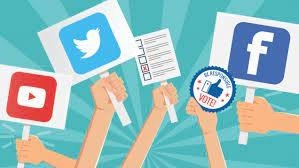Social media has revolutionized the way politics operates in the 21st century. Platforms like Twitter, Facebook, and Instagram have become powerful tools for politicians, activists, and voters to engage in discussions, share opinions, and spread political messages.
One of the biggest advantages of social media in politics is direct communication. Politicians can connect with voters without relying on traditional media, giving them control over their messaging. This has helped leaders like Barack Obama and Donald Trump mobilize supporters and shape public opinion.
Social media also plays a key role in political activism. Movements like #MeToo and #BlackLivesMatter have gained global attention through viral campaigns, forcing governments to address pressing social issues. Online petitions, live-streamed protests, and digital campaigns have become essential tools for advocacy.
However, the influence of social media is not always positive. Misinformation and fake news have become major concerns, as false narratives spread quickly, influencing voter decisions. Additionally, echo chambers—where users are exposed only to content that aligns with their beliefs—can deepen political polarization.
Despite these challenges, social media will continue to shape modern politics. As governments introduce regulations on digital content, the future of political discourse online will depend on how these platforms balance freedom of expression with misinformation control.

















